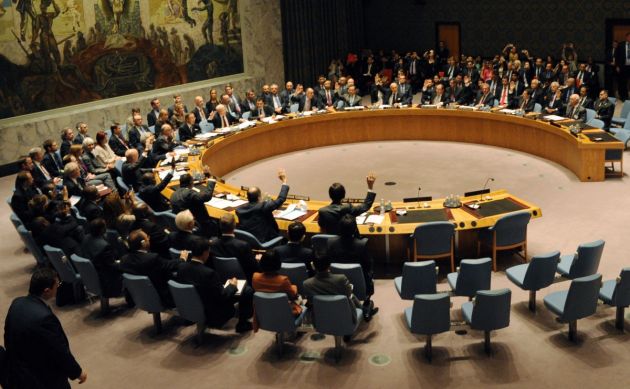Debate swirls on Saudi Arabia rejection of UN Security Council seat

Saudi Arabia, a key strategic ally of the United States in the Gulf region, has refused to accept its rotating U.N. Security Council seat, saying the council is incapable of ending wars and resolving conflicts.
The move by the oil-rich kingdom, known for enforcing a form of Islam criticised for its oppressive nature, took many States by surprised, while some Arab countries urged Saudi Arabia to take its seat on the U.N. council.
Gulf countries supported the rejection.
But a non-governmental organization that covers the United Nations Human Rights Council in Geneva welcomed it as a victory saying that Saudi Arabia oppresses both Muslims and Christians and has one of the worst records on human rights and religious freedom on the planet.
"A country whose legal system routinely lashes women rape victims rather than punish the perpetrators never belonged in the UN Security Council in the first place," said Hillel Neuer, executive director of the non-governmental human rights group UN Watch, arguing it should now withdraw its bid to serve on the U.N. Human Rights Council.
There is still, however, uncertainty about where Saudi Arabia, had officially notified the United Nations of its decision to reject its Security Council place.
U.N. General Secretary Ban Ki-moon told journalists Friday, "Membership in the Security Council is a decision by the member States. I have taken note of the media reports regarding the decision of Saudi Arabia, but I would like to caution you that I have received no official notification in this regard."
It its statement the Saudi foreign ministry said, "The kingdom sees that the method and work mechanism and the double standards in the Security Council prevent it from properly shouldering its responsibilities towards world peace."
Many countries have called for reform of U.N. Security Council on which the five victorious allies of World War II – Britain, China, France, Russia and the United States – have permanent veto rights.
The day after the Saudi announcement, the Gulf Co-operation Council backed Saudi Arabia's rejection of its seat on the U.N. Security Council, praising the Gulf nation's call for reform.
The GCC Secretary General, Abdul Latif bin Rashid Al Zayani, said in a statement, "underlined the importance of Saudi Arabia's call for the realisation of a fundamental reform of the Security Council's system," Qatar's State news agency reported.
The Saudi statement said, "To have the Palestinian cause remaining without a fair and permanent solution for 65 years, which resulted in several wars that threatened international peace and security, is evidence and proof of (the) Security Council's inability to perform his duties and responsibilities."
The statement also blamed the Security Council for not preventing the spread of weapons of mass destruction in the region - especially nuclear weapons.
Saudi Arabia was probably referring to its neighbor Iran with which it has long been at odds.
Saudi Arabia supports rebels trying to overthrow the regime of Syrian President Bashar al-Assad in the civil war in Syria, and it blamed the U.N. for not punishing the government after a poison gas attack there killed hundreds of civilians.
In Geneva, UN Watch called on Saudi Arabia to drop its bid for next month's election to the Human Rights Council.
The NGO, which is often supportive of Israel, said Saudi Arabia's refusal to take its seat on the UN Security Council is a "victory for human rights."
"A country whose legal system routinely lashes women rape victims rather than punish the perpetrators never belonged in the UN Security Council in the first place," said Hillel Neuer, executive director of the non-governmental human rights group UN Watch.
UN Watch also asserted that Saudi Arabia is the world's largest source of funds for Islamist terrorist groups, and was an "absurd choice" to legislate for the world on combating terrorism.
"While the Saudi statement invoked UN 'double standards' as their grounds for refusal, the truth is that Saudi Arabia's entire system is a double standard.
"Under Saudi law and practice, there is one standard for men, and another for women, who cannot vote, drive a car, or travel without a male guardian; one for Muslims, and another for Christians, 53 of whom who were arrested this year by religious police for praying in a private home; one for heterosexuals, and another for gays, where homosexuality is punishable by death, and where gays have been publicly beheaded," said Neuer.
"Saudi Arabia has an abysmal human rights record, and by logic and morality never belonged on a Security Council where members need to address critical human rights and humanitarian issues.
"Saudi Arabia continues to rank as one of the worst places on the planet when it comes to the rights of women, freedom of religion, and other fundamental liberties," said Neuer. "We are now calling on Saudi Arabia to also pull out of next month's election to the Human Rights Council. The Saudi bid is the height of hypocrisy."